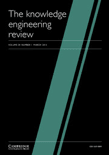
KNOWLEDGE ENGINEERING REVIEW
Scope & Guideline
Connecting Theory and Practice in Knowledge Engineering
Introduction
Aims and Scopes
- Knowledge-Based Systems and Applications:
The journal emphasizes the development and application of knowledge-based systems in real-world scenarios, including disaster management, legal decision-making, and healthcare, showcasing the practical implications of knowledge engineering. - Artificial Intelligence and Machine Learning:
A core area of focus includes the integration of AI and machine learning techniques, particularly in adaptive learning, reinforcement learning, and evolutionary algorithms, highlighting advancements in these fields. - Multi-Agent Systems and Interaction:
Research on multi-agent systems, including agent-based modeling and interactions in dynamic environments, is a significant aspect, particularly in decision-making contexts such as game theory and cybersecurity. - Ontology and Semantic Technologies:
The journal covers the evolution and application of ontologies and semantic technologies, which are crucial for knowledge representation and management in intelligent systems. - Evaluation and Metrics in Knowledge Engineering:
There is a consistent focus on evaluation techniques, metrics, and frameworks for assessing the performance of knowledge systems and algorithms, ensuring rigorous scientific standards.
Trending and Emerging
- Dynamic and Adaptive Learning Systems:
Recent publications emphasize dynamic and adaptive learning systems, particularly in the context of game theory and real-time decision-making, showcasing the importance of adaptability in knowledge systems. - COVID-19 Related Knowledge Extraction:
The journal has seen a surge in research related to interactive knowledge extraction from the COVID-19 corpus, highlighting the relevance of knowledge engineering in addressing global challenges. - Cybersecurity and Adversarial Learning:
There is an increasing focus on adversarial learning and its applications in cybersecurity, marking a trend towards integrating knowledge engineering with security technologies. - Evolutionary and Reinforcement Learning Techniques:
The rise of evolutionary algorithms and reinforcement learning methods points to an emerging trend in optimizing decision-making processes and problem-solving in complex environments. - Explainable Artificial Intelligence (XAI):
The growing interest in explainable AI signifies a trend towards ensuring transparency and accountability in AI systems, a crucial aspect of knowledge engineering as it relates to user trust and understanding.
Declining or Waning
- Traditional Rule-Based Systems:
Research centered around traditional rule-based systems appears to be waning as newer methodologies such as machine learning and agent-based systems gain traction in knowledge engineering. - Basic Knowledge Representation Techniques:
There is a noticeable decrease in publications focusing on basic knowledge representation techniques, likely overshadowed by more complex and adaptive approaches involving ontologies and semantic networks. - Static Planning Methods:
Static planning methods are becoming less prominent as dynamic and adaptive planning approaches, particularly those utilizing real-time data and reinforcement learning, take precedence in the literature. - Generic Surveys on Knowledge Engineering:
Generic survey articles that do not delve into specific advancements or applications are less frequently published, indicating a preference for more focused and innovative research contributions.
Similar Journals

Journal of Computational Design and Engineering
Elevating Engineering Standards with Cutting-edge ResearchThe Journal of Computational Design and Engineering, published by Oxford University Press, is a premier open-access journal dedicated to advancing the field of computational science, technology, and engineering. With an E-ISSN of 2288-5048 and having transitioned to open access in 2015, this journal fosters a wide-reaching dissemination of high-quality research and innovative methodologies pertinent to computational mathematics, mechanics, modeling, and simulation. Notably recognized within the academic community, the journal boasts impressive rankings, including Q1 in Computational Mechanics and Computer Graphics, underscoring its significance in these fields. With a broad scope that appeals to researchers, professionals, and students alike, the Journal of Computational Design and Engineering plays a vital role in stimulating discussions on the intersection of computation and design, providing a platform for the latest advancements that shape engineering practices globally. As we look forward to its continued publication until 2024, the journal stands as a crucial resource for those aiming to push the boundaries of knowledge in computational engineering disciplines.
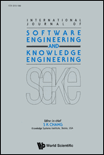
INTERNATIONAL JOURNAL OF SOFTWARE ENGINEERING AND KNOWLEDGE ENGINEERING
Empowering Engineering Minds with Cutting-edge InsightsThe INTERNATIONAL JOURNAL OF SOFTWARE ENGINEERING AND KNOWLEDGE ENGINEERING, published by WORLD SCIENTIFIC PUBL CO PTE LTD in Singapore, is a pivotal platform for disseminating cutting-edge research in the fields of software engineering and knowledge systems. With an ISSN of 0218-1940 and an E-ISSN of 1793-6403, this journal has been a reliable resource for scholars and practitioners since its inception in 1996. The journal is indexed across multiple prestigious databases, reflecting its relevance with a Category Quartile ranking of Q3 in both Computer Graphics and Computer Networks for 2023, and it maintains a steady trajectory of growth and scholarly contribution. Although not an Open Access journal, it is accessible through various academic institutions and libraries, ensuring researchers can engage with high-quality, peer-reviewed articles that explore advancements, theoretical developments, and practical applications in software and knowledge engineering. As it converges towards its end year of 2024, this journal continues to foster innovation and knowledge exchange, making it an essential resource for anyone invested in these dynamic fields.

Jordanian Journal of Computers and Information Technology
Unveiling New Horizons in Information SystemsJordanian Journal of Computers and Information Technology, published by Princess Sumaya University and SRSF, stands as a significant platform for scholarly research in the realm of computer science, particularly in topics related to emerging technologies and information systems. With its Open Access model initiated in 2015, the journal facilitates global access to high-quality research findings, embodying the principles of knowledge sharing and academic collaboration. The journal's ranking in the Q3 category of Computer Science (miscellaneous) and its placement in the 54th percentile of Scopus' General Computer Science rankings underscore its growing reputation among researchers and professionals alike. Situated in Amman, Jordan, the journal actively contributes to the regional and international discourse on computing methodologies, applications, and innovations, making it an indispensable resource for scholars seeking to advance their understanding and engage with contemporary issues in technology.
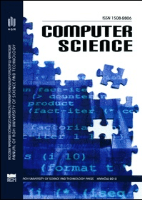
Computer Science-AGH
Fostering Innovation Through Open Access KnowledgeComputer Science-AGH, published by the AGH University of Science & Technology Press in Poland, is an esteemed open access journal that has been disseminating high-quality research since 2004. With ISSN 1508-2806 and E-ISSN 2300-7036, this journal focuses on a diverse range of areas within the computer science discipline, including but not limited to Artificial Intelligence, Computational Theory, Computer Graphics, and Networks. While it currently holds a Q4 ranking across several categories as of 2023, it actively promotes research that contributes to the academic community's understanding and evolution in the field. The journal's commitment to open access ensures that vital research is accessible to a wider audience, fostering collaboration and innovation. With its comprehensive focus and strategic publication goals, Computer Science-AGH plays a crucial role in advancing the frontiers of computer science research and education, making it an invaluable resource for researchers, professionals, and students alike.
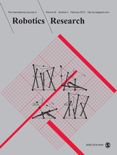
INTERNATIONAL JOURNAL OF ROBOTICS RESEARCH
Transforming Theoretical Concepts into Practical ApplicationsINTERNATIONAL JOURNAL OF ROBOTICS RESEARCH (ISSN: 0278-3649, E-ISSN: 1741-3176), published by SAGE PUBLICATIONS LTD, is a leading journal in the fields of robotics and engineering. With an impressive impact factor and recognized as a Q1 journal in various categories including Applied Mathematics, Artificial Intelligence, Electrical and Electronic Engineering, Mechanical Engineering, Modeling and Simulation, and Software, it has established itself as an essential resource for researchers and practitioners alike. The journal covers a wide array of topics relevant to the advancing disciplines of robotics, ensuring comprehensive perspectives on both theoretical and practical applications. Notably, it ranks at the top percentile in Scopus rankings across multiple fields, which underscores its significance in the research community. Published continuously since 1982, the journal invites submissions that push the boundaries of robotics research, offering a platform for innovative ideas and solutions that address complex engineering problems. While it operates under a subscription model, its vast reach and reputation make it an invaluable resource for advancing knowledge in robotics.
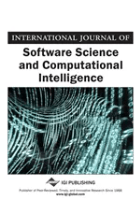
International Journal of Software Science and Computational Intelligence-IJSSCI
Fostering Innovation in Computational IntelligenceInternational Journal of Software Science and Computational Intelligence (IJSSCI) is a prominent academic journal published by IGI Global, dedicated to advancing the fields of software science and computational intelligence. With its ISSN 1942-9045 and E-ISSN 1942-9037, IJSSCI offers a platform for researchers, practitioners, and students to disseminate innovative research findings, theoretical advancements, and practical applications in areas such as algorithm development, machine learning, and software engineering. Although the journal currently does not operate under an open access model, its rigorous peer-review process ensures high-quality publications that contribute significantly to the academic discourse. Based in Hershey, PA, IJSSCI is recognized for its commitment to fostering collaboration among professionals in the technology and computer science fields, making it an essential resource for those looking to stay at the forefront of software science advancements.
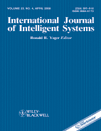
INTERNATIONAL JOURNAL OF INTELLIGENT SYSTEMS
Exploring the Frontiers of Intelligent InnovationInternational Journal of Intelligent Systems, published by Wiley-Hindawi, stands at the forefront of the Artificial Intelligence, Human-Computer Interaction, Software, and Theoretical Computer Science fields. With an impressive Q1 ranking across multiple categories in 2023 and a robust track record since its inception in 1986, this journal is essential for researchers, professionals, and students alike who are eager to explore cutting-edge innovations and theoretical advancements. Located in the United Kingdom, the journal operates under the esteemed Wiley-Hindawi publishing house, ensuring a broad dissemination of high-quality research articles. The journal's diverse scope encompasses advancements in intelligent systems and their practical applications, fostering an interdisciplinary dialogue that encourages collaboration across various domains. Although Open Access options are not available, subscribers benefit from the rich repository of knowledge this journal offers, making it a vital resource in the rapidly evolving landscape of intelligent technologies.

DATA & KNOWLEDGE ENGINEERING
Transforming Data into Knowledge for a Smarter WorldData & Knowledge Engineering is a prestigious, peer-reviewed journal dedicated to the fields of data management, information systems, and knowledge engineering. Published by Elsevier in the Netherlands, this journal serves as a critical resource for researchers, professionals, and students alike, offering a platform for high-quality, original research and innovative approaches in the realm of data-driven technologies and methodologies. With a considerable impact factor and classified in the Q2 quartile for Information Systems and Management, it ranks 47th out of 148 journals in its category, placing it in the esteemed 68th percentile according to Scopus metrics. Data & Knowledge Engineering covers a wide array of topics including database systems, data mining, and knowledge representation, ensuring that it remains at the forefront of advancing understanding and application in these dynamic fields. Engage with compelling articles and significant findings published since its inception in 1985, as the journal continues to shape the future of data-centric research up to 2024 and beyond.

International Journal of Mathematical Engineering and Management Sciences
Advancing Research at the Intersection of Mathematics and Engineering.International Journal of Mathematical Engineering and Management Sciences is a prestigious open-access journal published by RAM ARTI PUBL, established in 2016 and headquartered in Dehradun, Uttarakhand, India. With an ISSN of 2455-7749, this journal aims to bridge the gap between mathematical theory and practical applications across various domains, including business, management, engineering, and computer science. As evidenced by its impressive Q2 category rankings in the 2023 metrics of Business, Management, and Accounting, Computer Science, and Engineering, along with a commendable Q3 ranking in Mathematics, IJMEMS consistently showcases high-quality research that significantly contributes to its fields. The journal's strategic focus on interdisciplinary collaboration allows for a rich exploration of innovative methodologies and technological advancements, making it a valuable resource for researchers, professionals, and students. With access options since its inception, it remains committed to disseminating groundbreaking research and fostering academic excellence within the global scientific community.

JOURNAL OF COMPUTER AND SYSTEMS SCIENCES INTERNATIONAL
Empowering Research in Computer Vision and Information SystemsJOURNAL OF COMPUTER AND SYSTEMS SCIENCES INTERNATIONAL, published by PLEIADES PUBLISHING INC, serves as a vital platform in the fields of Applied Mathematics, Computer Networks and Communications, Computer Vision and Pattern Recognition, Control and Systems Engineering, Information Systems, and Software among others. Established in 1993, the journal offers insights into both theoretical and practical advancements within these disciplines, continuously evolving through to 2024. Its current impact is reflected in its Q3 rankings across multiple categories in 2023 and Scopus rankings that position it within the 15th to 33rd percentiles, showcasing its relevance within the academic community. While not an Open Access journal, it maintains accessibility through institutional subscriptions, ensuring that researchers and professionals can engage with high-quality content. The journal is instrumental for those looking to deepen their understanding and contribute to ongoing discourse in computer science and systems sciences, making it an essential resource for students, researchers, and industry practitioners alike.